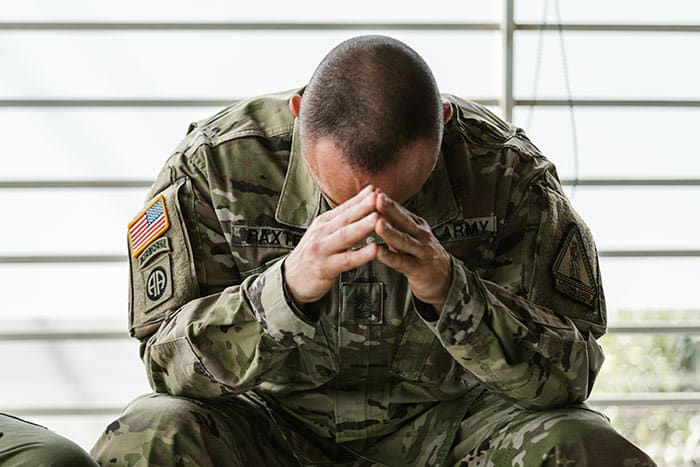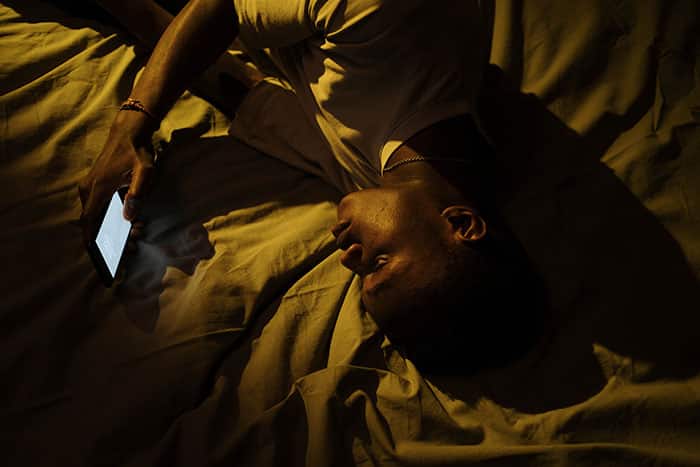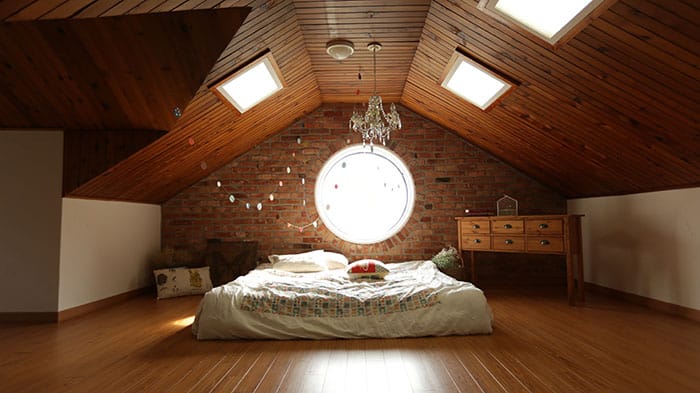People of all ages frequently have trouble falling or staying asleep, but those diagnosed with post-traumatic stress disorder are more likely to have these issues.

Sleep issues and nightmares are frequent PTSD symptoms, and they may potentially increase other symptoms and complicate therapy.
Why Do People With PTSD Have Sleep Problems?
Because of a variety of factors, PTSD frequently causes sleep issues.
- Patients with PTSD frequently experience the need to be on high alert all the time. This hyper-alertness frequently causes sleep disturbances. Patients may struggle to unwind and go to sleep. Additionally, they could have problems returning to sleep after readily waking up.
- Worry and negative thoughts might make it difficult to fall asleep. Worry can range from little inconveniences to serious concerns about one’s safety or those close to them. Sometimes, even anxiety about sleeping might get in the way of getting any rest.
- People with PTSD frequently struggle with self-medication with drugs and alcohol. Alcohol abuse might make it difficult to sleep. Alcohol also reduces the quality of sleep, which results in tiredness when people get up. Drugs can also similarly affect sleep.
- Nightmares associated with PTSD might interfere with sleep. It could be challenging to fall asleep again after being awakened in the middle of the night by a nightmare. With frequent bad dreams, fear may also develop: Some patients start to avoid going to sleep because they don’t want to have nightmares.
- Patients who also have physical health problems may have trouble falling asleep. It’s common for chronic pain, such as back pain, to keep you from falling asleep. Women frequently experience reproductive problems, digestive illnesses, and stomach troubles that keep them awake. Many people who experience medical issues find it difficult to fall asleep.
What Can You Do if You Have Sleep Problems?
You might sleep better if you make certain modifications to your lifestyle. There are lots of benefits to good sleep hygiene and lots of small changes that, though minor, can be beneficial

If you want to notice an improvement, stick with the modifications you make for a few nights to give them time to work.
Change Your Sleeping Area
Make sure your sleeping space is comfortable for a good night’s rest. You can have trouble sleeping if there’s too much activity, noise, or light in your bedroom.
Establish a peaceful and cozy resting space. Find a mattress that meets your sleeping needs by reading mattress reviews.

Clinicians advise that you only use your bedroom for sleeping or intimate activity: Avoid watching television or listening to the radio in the bedroom.
Turn off all lights to make sure the bedroom is completely dark. For the best sleeping conditions, keep the temperature cool.
White noise machines can help some individuals sleep better by producing steady background noise that also helps to drown out outside disturbances.
Keep to a Bedtime Routine and Sleep Schedule
Your body adjusts to a sleep schedule more quickly if you have a consistent sleep routine with the same bedtime and wake-up time. Your body will eventually develop a natural ability to go to sleep and wake up on schedule.
Create a relaxing bedtime routine to prepare your body for sleep. It might be beneficial to take a warm shower or sip some decaffeinated tea. Prior to going to bed, stay away from stressful or energetic activities. If noise and light bother you, consider donning a mask and earplugs.
Try to Relax if You Can’t Sleep
If you have trouble falling asleep, try relaxing instead. Until you are ready for sleep, you might get out of bed and read quietly on the sofa. Avoid using devices or watching television during this time.

If you want to prepare your body for sleep, try focused relaxation. Imagine yourself in a serene environment as you focus on particular aspects that soothe you.
Watch Your Activities During the Day
Ensure that you’re not doing anything during the day that will keep you from falling asleep.
- For overall health, it is necessary to exercise every day. But you should avoid working out two hours before bedtime.
- Every day, spend some time in the sunshine outside to help control your waking and sleeping cycles.
- Caffeine-containing foods and drinks should be limited or avoided.
- Avoid alcohol because it could impair your sleep.
- Avoid smoking; nicotine can disturb your sleep.
- Avoid taking a nap during the day, especially in the evening.
- Drink in moderation after supper to avoid getting up to use the restroom.
- Avoid taking drugs that can keep you up at night.
Talk to Your Doctor
If you consistently have issues with or disturbances in your sleep, speak with your doctor. Sleep issues are frequently caused by anxious thoughts, nightmares, and/or pain; a doctor may be able to help with these issues.
A doctor might be able to recommend a sleeping aid depending on your symptoms and general health. You might also obtain advice on techniques for getting better sleep.
Other Resources for PTSD
- PTSD and Sleep Deprivation: Major causes of insomnia with PTSD include hyper-vigilance, nightmares, fear of going to sleep, guilt, substance abuse, stress, and physical and emotional pain.
- Relationship Between Sleep and Mental Health: Sleep quality can be impacted by having a mental health condition, and poor sleep can affect your mental health.
- How Sleep Deprivation Impacts Mental Health: Sleep deprivation has been associated with depression and other mental health conditions.
- The Hidden Costs of Insufficient Sleep: Insufficient sleep raises a person’s risk of significant medical disorders like obesity, diabetes, and cardiovascular disease.
- Sleep Disturbance as a Treatment Target in PTSD: Persistent and severe post-traumatic nightmares and sleep disturbances can be present in PTSD.
- PTSD in Adults: PTSD is common in adults and is characterized by intrusive thoughts, nightmares and flashbacks of traumatic events in the past, which can contribute to significant social, vocational, and interpersonal dysfunction.
- Post-Traumatic Stress Disorder Treatment: Psychotherapy and prescription medications to treat depression and anxiety are typically used to treat PTSD.
- The Effects of PTSD on Patients: A person’s capacity to work, carry out daily tasks, or relate to family and friends may be affected by PTSD.
- Managing PTSD in Children: Children also can develop symptoms and complications from PTSD.
- Overview of Post-Traumatic Stress Disorder: A stressful or distressing incident can lead to post-traumatic stress disorder (PTSD), which is a mental health issue.
- PTSD and Other Related Comorbidities: Post-traumatic stress disorder (PTSD) patients may also have other medical conditions, which makes it challenging to make a precise diagnosis of PTSD.
- Trauma and Stressor-Related Disorders in Children: PTSD is one of the disorders associated with trauma that affects children.
- Trauma Disorders: Following an extremely stressful event, some people may find it difficult to regain their regular state of mind. Some people encounter mental health issues as a result of the experience.
- PTSD in DSM-V: For the diagnosis of PTSD, you should use the guidelines from the Diagnostic and Statistical Manual for Mental Disorders (DSM-V).
- 5 Ways Dogs Help Veterans With PTSD: The therapeutic advantages of owning a dog in the treatment of PTSD are beginning to be recognized by psychologists.
- Sleep Disturbances in TBI and PTSD: Veterans with post-traumatic stress disorder and traumatic brain injuries may experience difficulties in treatment and recovery if they don’t get enough sleep.
- PTSD and Conduct Disorder: Research has revealed that there is an association between conduct disorders and patients with PTSD.



